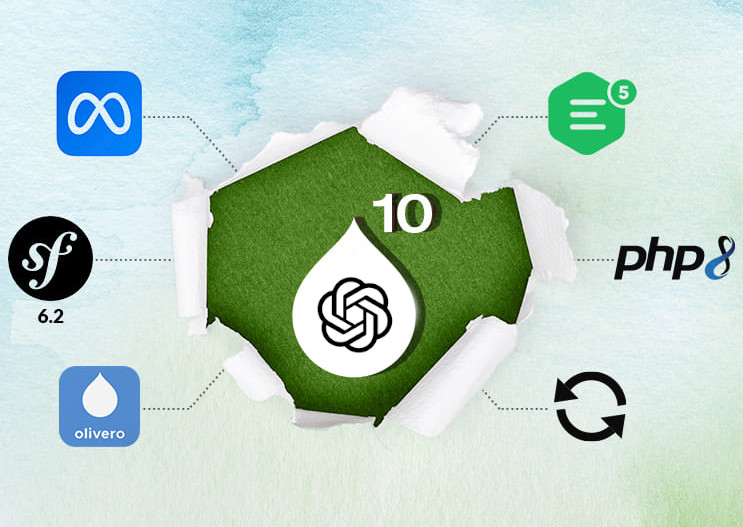Using ChatGPT to Accelerate Drupal Module Development: A Game-Changing Approach
Drupal, one of the most popular content management systems (CMS) in the world, empowers millions of websites with its flexibility and extensibility. To add new features or functionalities, developers often create custom modules. However, this process can be time-consuming and resource-intensive. In this blog, we explore an innovative approach to accelerate Drupal module development using ChatGPT, an AI-powered language model developed by OpenAI.
The Power of ChatGPT
ChatGPT is a state-of-the-art language model capable of understanding and generating human-like text. With its natural language processing capabilities, ChatGPT can be a valuable tool for developers looking to streamline their workflows and reduce manual efforts.
How ChatGPT Works
To use ChatGPT for generating Drupal modules, developers can interact with the language model through its API. By sending text-based requests, developers can leverage the AI's knowledge and creativity to craft code snippets, module structures, or even entire module outlines. This interaction with ChatGPT can significantly reduce the time spent on manual code writing and boost productivity.
Generating Quick Drupal Modules with ChatGPT
- Module Skeleton Generation Creating the basic structure of a Drupal module can be a repetitive task. With ChatGPT, developers can describe the functionalities they want the module to have, and the AI will provide a skeleton code for the module. This code can include hook implementations, form definitions, and other essential elements that set the foundation for the module.
- Form and Block Creation Forms and blocks are common components in Drupal modules. By simply describing the data fields and their functionalities, developers can ask ChatGPT to generate the form or block code. This approach can save significant development time, especially for simple forms and blocks.
- Database Schema and Entity Definition When creating modules that interact with databases and entities, defining the schema and structure can be tedious. ChatGPT can be an excellent aid in generating database schema and entity definitions based on the provided specifications, simplifying complex tasks and reducing the chances of errors.
- API Integration Integrating third-party APIs is a common requirement in many Drupal projects. Developers can seek assistance from ChatGPT to understand the API documentation and even generate the initial code snippets to interact with the API.
- Automated Testing Testing is crucial for robust module development. ChatGPT can assist in generating test cases and scripts, enabling developers to perform initial testing quickly and effectively.
- Documentation Comprehensive documentation is vital for collaboration and project maintenance. ChatGPT can help developers draft the initial documentation for the module, including function descriptions, parameter explanations, and usage examples.
The Collaboration Aspect
While ChatGPT can significantly accelerate Drupal module development, it is essential to acknowledge that the language model is a tool, not a substitute for human expertise. Collaboration between developers and ChatGPT can yield impressive results, allowing developers to focus on higher-level logic and problem-solving while leveraging the AI's ability to handle repetitive tasks.
Conclusion
Using ChatGPT to generate quick Drupal modules opens up new possibilities for developers. It streamlines the development process, boosts productivity, and encourages collaboration between humans and AI. By leveraging the power of ChatGPT, Drupal developers can unlock new levels of efficiency and devote more time to creating innovative and impactful solutions for the web. However, it's crucial to strike the right balance between manual development and AI assistance, ensuring the quality and security of the final product. The future of Drupal module development is undoubtedly more exciting with the integration of AI technologies like ChatGPT.

